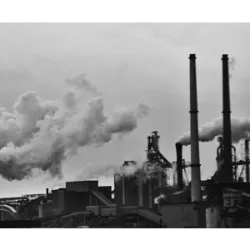Industrial Revolution Transforms the Economy

In the 18th century, the Industrial Revolution ushered in a new era of technological and economic development, profoundly changing European society. With advances such as James Watt's steam engine, production ceased to be artisanal and began to be carried out in factories, increasing efficiency and reducing costs. The textile sector was one of the first to be revolutionized, followed by the steel industry and transport, with the construction of railways and steamships.
Industrialization boosted the growth of cities, leading millions of peasants to migrate to urban centers in search of work. However, conditions in factories were precarious, with long working hours and low wages. The new organization of work also generated social tensions, resulting in the emergence of workers' movements that fought for better rights.
The Industrial Revolution consolidated capitalism, accelerated the modernization of Europe and profoundly influenced the global economy. Technological advances and increased production shaped the contemporary world, making industrialization a landmark of the Modern Age and a starting point for innovations that would transform society in the following centuries.
Did you know?












